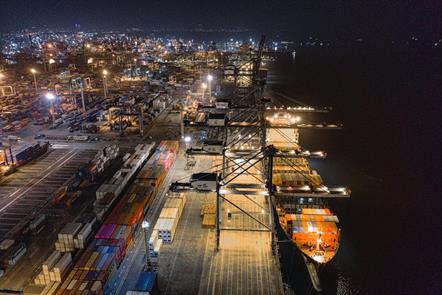Volterra Fietta is pleased to announce that it has received a number of accolades since the beginning of 2022: “Arbitration Firm of the Year in England” by the independent Lawyer International – Legal 100 – 2022; “International Dispute Resolution Law Firm of the Year – UK” by the Worldwide Financial Advisor Awards Magazine – Continent Awards 2022; “Arbitration Firm of the Year in England” by Corporate America Today Annual Awards 2022; and “Firm of the Year – Arbitration – England” by the Global 100 – 2022 Awards.
These rankings and testimonials reflect the dedication and the commitment to excellence of the firm’s highly specialised public international law experts. The firm is thankful for the continued trust of its many clients around the world. Volterra Fietta will continue providing them with innovative and practical advice so that they can succeed in their State-to-State, investor-State and commercial arbitration disputes.
Recent Developments in International Law
In the last four months, there have been a number of significant developments in international law.
On 2 March 2021, at UNEA 5.2 (Fifth session of the United Nations Environment Assembly), governments agreed to construct a legally enforceable international instrument to eradicate plastic pollution by 2024, as well as to establish a science-policy panel on chemicals and waste, and to avoid pollution. The plastics treaty is anticipated to cover the entire lifecycle of plastics, from manufacturing to design to disposal. UN Environment Program points out that the treaty’s drafting timeframe is fairly short (about two years), when most global treaties take five to 10 years to negotiate.
On 9 February 2022, the International Court of Justice (ICJ) issued the Reparations Judgment in Armed Activities on the Territory of the Congo (Democratic Republic of the Congo v. Uganda). Volterra Fietta was counsel for the Democratic Republic of Congo. The Court ruled Uganda must pay the Democratic Republic of the Congo (DRC) $325 million in reparations related to the brutal conflict between the two nations from 1998 to 2003. Uganda was found to be guilty for the deaths of 10-15,000 individuals in the eastern Ituri region, according to the judges. The Democratic Republic of Congo had sought $11 billion, but the courts disregarded various sections of the claim and settled on a far lesser amount. The ICJ ordered Uganda to pay $65 million in five annual payments between 2022 and 2026, with the first instalment due in September. Uganda had contended that the billions requested by the Democratic Republic of Congo would bankrupt the country. The court stated that its order would be “within Uganda’s ability to pay.” In its judgment, the court stated: “The reparation awarded to the DRC for damage to persons and to property reflects the harm suffered by individuals and communities as a result of Uganda’s breach of its international obligations.”
On 25 January 2022, the Court of Justice of the European Union (CJEU) overturned a General Court decision in Micula v Romania (Micula). In contrast to the General Court’s ruling, the CJEU believes that EU State aid regulations can be activated at the time of payment of an arbitral award, even if all of the state measures for which the ICSID verdict awarded the claimants were implemented prior to Romania’s EU membership. The CJEU further decided (among other things) that any pre-admission consent to arbitration given by an EU Member State is null and void, and that the EU’s judicial remedies system and the Treaty on the Functioning of the EU (TFEU) substitute arbitration processes upon accession to the EU.
On 20 January 2022, the International Centre for Settlement of Investment Disputes (ICSID) presented resolutions on the updated rules to the Administrative Council for a vote of approval, marking a major milestone in the five-year process of upgrading ICSID’s flagship rules for resolving international investment disputes. Two-thirds of the Administrative Council must approve amendments to the ICSID Convention Arbitration and Conciliation Rules, as well as the Administrative and Financial Regulations and Institution Rules. Adoption of the modified Additional Facility Rules for Arbitration and Conciliation Proceedings, as well as the standalone rules for Fact-Finding and Mediation, requires a majority of the votes cast. On 21 March 2022, ICSID Member States adopted the modified regulations. The new rules and regulations will go into effect on 1 July 2022. The proposed revisions are the most comprehensive in the 55-year history of ICSID. They are the result of significant consultation with ICSID’s membership and the general public, with recommendations developed over the course of five years in a series of six working papers.
During the fourth meeting of the Conference of the Parties to the Minamata Convention on Mercury (21 March 2022 – 25 March 2022), Parties to the Minamata Convention on Mercury considered a framework for evaluating the Convention’s efficacy (COP-4.2). The goal of the Convention is to protect human health and the environment against mercury emissions and releases caused by humans. Artisanal and small-scale mining (ASGM) were included for the first time on the COP agenda as they represent the major source of mercury emissions. In drafting ASGM national action plans, the parties undertook to consult Indigenous Peoples and local communities. The parties also discussed the revision of Annexes A and B on mercury-added products and manufacturing processes involving mercury or mercury compounds. The COP also calls for the phase-out of eight mercury-containing items, including compact fluorescent lamps, cold cathode fluorescent lamps, photograph film and paper, and propellant for satellites.
On 23 February 2022, the European Commission adopted a proposal for a Directive on corporate sustainability due diligence. The proposal intends to encourage sustainable and responsible business practices across global value chains. While the Commission is asking for feedback on the new Directive by 23 May 2022, if it is implemented, it will require rigorous environmental and human rights due diligence as early as 2024 (2 years period before enforcement). This proposed Directive would have three implications. First, there will be a more effective mechanism to protect human rights set out in international conventions. The proposed Directive specifies the list of conventions that companies must comply with. Secondly, directors of EU-based companies would take into account the consequences of their decisions for sustainability matters. This would include, where applicable, human rights, climate change, and other environmental consequences in the short, medium and long term. Thirdly, victims will benefit from great protection as they can easily start legal actions for damages.
Recent developments in the field of post-conflict claims commissions
I. INTRODUCTION
On 13 January 2022, the United Nations Compensation Commission (the “UNCC”) reported that it had issued its last payment of almost USD 700 million. The UNCC was created in 1991 as a subsidiary organ of the United Nations Security Council to process claims and pay compensation for damages arising from the Republic of Iraq’s invasion and unlawful occupation of the State of Kuwait. Since then, individuals, corporations and governments have filed around 2.7 million claims and sought more than USD 350 billion of compensation. The UNCC processed all claims and paid out more than USD 52 billion of compensation to approximately 1.5 million successful claimants.
II. BACKGROUND
Post-conflict claims commissions (“Claims Commissions”), such as the UNCC, are a long-standing feature of international dispute settlement. The international community has established Claims Commissions as a way to de-politicise the settlement of international disputes. Historically, such Claims Commissions have heard claims between States involved in an armed conflict, States involved in an armed conflict and third States, States involved in an armed conflict and nationals of other States (whether or not their State of nationality was involved in the armed conflict).
On 9 February 2022, the Governing Council of the UNCC marked, through a press release , the fulfilment of the UNCC’s mandate. This last milestone in the history of international dispute settlement provided an appropriate backdrop to consider the use of Claims Commissions by the international community over the past three centuries.
III. VOLTERRA FIETTA’S WEBINAR ON POST-CONFLICT INTERNATIONAL CLAIMS COMMISSIONS
In response to this remarkable development, Volterra Fietta held a webinar on Claims Commissions , on 24 March 2022. The webinar focused on various aspects of the law and practice of Claims Commissions. The panel of distinguished speakers was composed of public international law experts with particular expertise in the work of prominent Claims Commissions, such as the UNCC. Mr Gunjan Sharma, Counsel at Volterra Fietta, moderated this webinar, which was highly attended. The speakers addressed the following issues:
A. A historical overview and practical aspects of post-conflict claims commissions
Professor Robert Volterra, partner at Volterra Fietta, gave a historical overview of key Claims Commissions. He also referred to, among others, their operational characteristics, including their composition, statutory mandate and outcomes. In terms of Claims Commissions practical aspects, he highlighted the importance and the hurdles of collecting and presenting evidence before Claims Commissions by mentioning the example of the Eritrea-Ethiopia Claims Commission (the “EECC”).
B. Latin America 19th and 20th centuries post-conflict claims commissions
Dr Gustavo Prieto, Senior Researcher at the Department of European, Public and International Law of Ghent University, discussed, among others, the political element and the legitimacy issues of this period’s Latin American Claims Commissions. He emphasised on the parallel rise of a legal community of jurists that engaged in the adjudication process of those claims commissions. The same legal community played a crucial role in promoting the application of public international law in Latin American inter-State disputes.
C. The Iran-United States Claims Tribunal
Mr Jeremy Sharpe, independent arbitrator and consultant, discussed the law and practice of the Iran-United States Claims Tribunal (the “IUSCT”). It was established in response to the 1979 hostage crisis at the US Embassy in Tehran, and the subsequent freezing of Iranian assets by the US. Mr Sharpe provided the necessary historical/political Iran-US background that led to the establishment of the IUSCT in 1981 under the “General Declaration” and the “Claims Settlement Declaration”, with Algeria acting as the mediator. He also referred to, among others, the IUSCT’s unique operational characteristics, including its flexible governing law, simple and transparent procedure, and its function as a de-politicising body.
D. The United Nations Compensation Commission
Ms Emanuela-Chiara Gillard, Senior Research Fellow at the Oxford Institute for Ethics, Law and Armed Conflict, discussed the law and practice of the UNCC, established in 1991 under the UN Security Council Resolution 687. She focused on, among others, certain operational innovations that made the UNCC successful, such as the effective administration of its funding sources. The discussion also focused on the UNCC’s approach to the development of public international law with regard to the processing of claims and the awarding of compensation.
E. The Eritrea-Ethiopia Claims Commission
Professor Chiara Giorgetti, of Richmond University, discussed, among others, the law and practice of the EECC, established in 2000 under the Algiers Agreement and after the Eritrea-Ethiopia armed conflict. She described the Commission’s process of claims as flexible, expeditious and streamlined. She also focused on the EECC’s examination of international humanitarian law issues, including the treatment of prisoners of war. However, one of the shortcomings of the EECC was the lack of financing, which has prevented the payment of compensation to the claimants.
IV. CONCLUSION
The recent conclusion of the UNCC’s mandate is a reminder that de-politicising, conflict resolution bodies still have a crucial role to play in international dispute settlement. In times of international conflicts and humanitarian crises, as evidenced also through the International Court of Justice’s recent practice, Claims Commissions might have to consider deeply issues such as financing that will allow them to perform their mandate more efficiently.
Recent firm events
Graham Coop, Partner, together with Florentine Vos, Associate at Volterra Fietta, wrote an article entitled “Anti-satellite missile tests: What are the legal consequences?”, published by Global Military Communications.
On 19 January 2022, Volterra Fietta hosted a seminar on “Weapons in Space”.
On 1 February 2022 Volterra Fietta hosted a seminar on “Successes and failures of UNCLOS”.
On 2 February 2022 Volterra Fietta hosted a seminar on “The winter of discontent: surging energy prices in Europe”.
On 16 February 2022 Volterra Fietta hosted the “Deep Seabed Mining – Webinar 1: Pulling the trigger – what’s next now Nauru has triggered the two-year countdown for deep seabed mining”.
On 24 February 2022 Volterra Fietta hosted a seminar on “Provisional measures at the International Court of Justice”.
On 25 February 2022 Volterra Fietta hosted a seminar on “Title to Oil and Gas in Disputed Maritime Areas”.
On 02 March 2022 Volterra Fietta hosted a seminar on “Artificial Intelligence in Space”.
On 17 March 2022 Volterra Fietta hosted the “Deep Seabed Mining – Webinar 2: Dispute Resolution in Deep Seabed Mining”.
On 24 March 2022 Volterra Fietta hosted a seminar on “Post-conflict International Claims Commissions”.
On 10 April 2022, Robert Volterra gave the 10th annual Bergsten Lecture, hosted by the University of Vienna and the Austrian Arbitration Association, on “The Right to Counsel in International Arbitration”.
In the coming weeks, Volterra Fietta plans to offer seminars on the following topics:
- Claiming the unclaimed: the limits of the continental shelf beyond 200 nm
- DSM and sustainability – mining for the green energy transition
- Boundary delimitation under UNCLOS in practice
- Spotlight on mining and responsible investing: latest developments in integrating business and human rights
- Rising sea levels and international law
- Dispute resolution under UNCLOS
- Fair and Equitable DSM – sharing DSM’s financial and other benefits
- Retroactive application of environmental laws
- ‘Between a rock and a hard place: must we choose between Covid-19 recovery and addressing climate change?’
- Different markets, different cultures? How are gas price reviews developing around the world?
If you would like to be added to Volterra Fietta’s invitation list for future events, please email your name and affiliation to info@volterrafietta.com.



